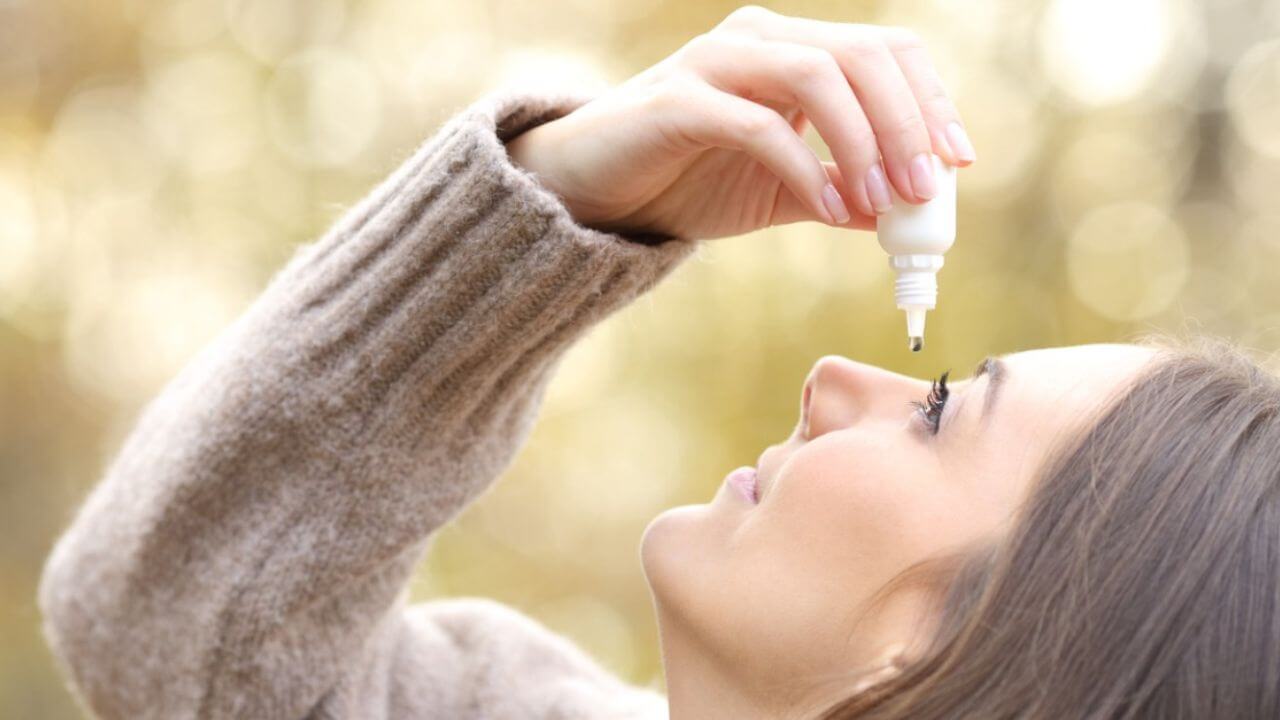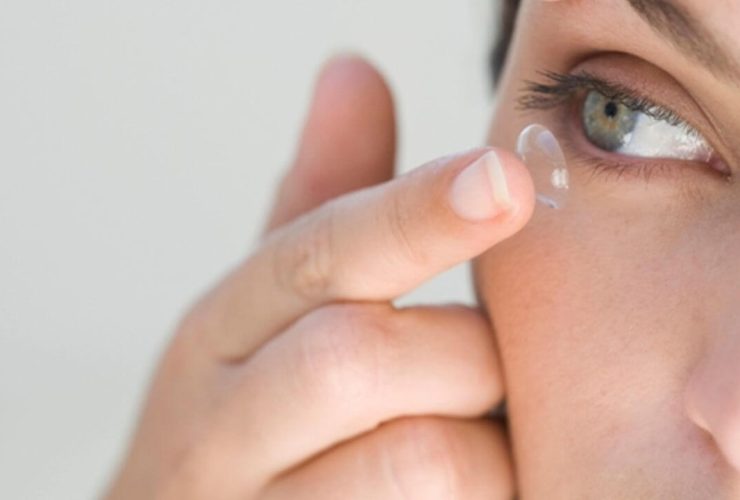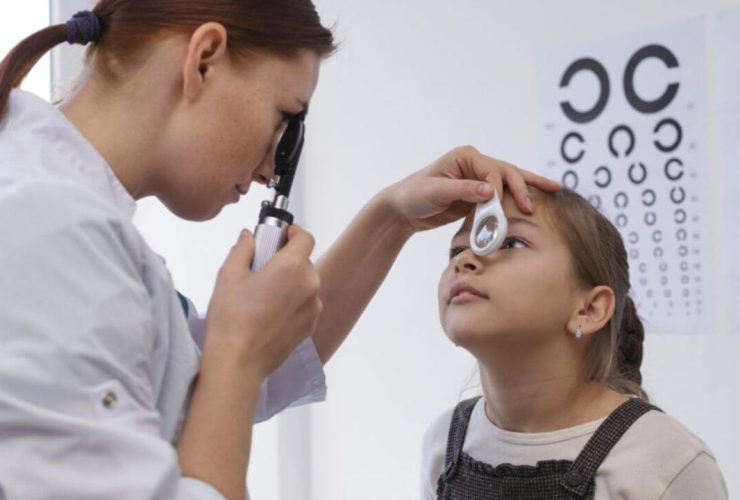Seasonal Eye Allergies in Wigan: Prevention and Treatment
When spring arrives in Wigan and the trees begin to bloom, many welcome the sunshine and longer days. For some, though, this time of year brings unwelcome visitors: itchy, red, watery eyes. At Carlton & Stanley Opticians, we’ve noticed a rise in patients who struggle with seasonal eye allergies as pollen fills the air. In this article, we’ll explain what these eye allergies are, why they matter here in Wigan, and how you or your family can prevent and manage them effectively. We aim to provide clear, practical guidance you can act on—so you don’t have to let the season spoil your vision or comfort.
We’ll cover causes and triggers, recognising symptoms, how to limit exposure, treatment options, when to seek professional help, and lifestyle strategies specific to the local area. Let’s get started.
What are Seasonal Eye Allergies?
Understanding Ocular Allergic Reactions
Seasonal eye allergies, medically known as allergic conjunctivitis, occur when the eyes react to allergens in the air. In technical terms, the thin layer covering the white of the eye and the inside of the eyelid (the conjunctiva) becomes inflamed.
In the case of seasonal eye allergies, the trigger tends to be things like tree pollen, grass pollen, weed pollen—elements that fluctuate with the seasons.
How this Applies in Wigan
Here in Wigan and the surrounding Greater Manchester area, changeable weather and a mix of green spaces and urban planting mean pollen levels can spike, especially in spring and early summer. For people prone to allergies, the eyes can take the brunt of the reaction. When we at Carlton & Stanley see patients during these peaks, the theme is the same: itchy, watery eyes, discomfort outdoors, and a general sense of fatigue from the irritation.
Why Managing them Matters
Left unaddressed, eye allergy symptoms can impact everyday life: they interfere with driving, reading, screen use, sleep quality, and general comfort. And although they’re not usually dangerous, they are painful and avoidable—with the right steps. At Carlton & Stanley Opticians, we believe that good eye health is more than just vision correction—it’s about comfort, function, and living well through the seasons.
Common Triggers & Risk Factors in the Region
Key Triggers You Should Know
Here are the allergens most often responsible for seasonal eye allergies:
- Pollen from trees, grasses and weeds. These particles are airborne and make their way to your eyes easily.
- Mould spores in outdoor and damp areas.
- Dust, pollution and irritants, which may not be strictly seasonal but can worsen symptoms in the changing spring/summer weather in Wigan.
Local Environmental Factors
In Wigan:
- Spring and early summer typically bring increases in tree and grass pollen—especially after nights of rain followed by sun.
- The mix of open green spaces and suburban housing means pollen can travel indoors easily—so your home doesn’t necessarily protect you unless you take action.
- Urban pollutants (car emissions, dust) may combine with pollen to “sensitise” your eyes—making mild allergy responses more severe.
Who is most at Risk?
- Those with hay fever, asthma or other allergies already. Eye allergies often appear alongside them.
- People with sensitive eyes or previous episodes of ocular allergy.
- Contact lens wearers (the lenses may trap allergens or cause additional irritation).
- Anyone spending a lot of time outdoors during pollen peaks.
Recognising the Symptoms: When It’s More Than Just a Bit of Itch
Typical Signs of Seasonal Eye Allergies
Some of the common symptoms include:
- Itchy, irritated eyes (often both eyes)
- Redness of the white of the eye and/or inner eyelid
- Watery or clear discharge (not thick, coloured pus)
- Swollen or puffy eyelids
- Sensitivity to bright light in some cases
How to Distinguish From Other Eye Issues
It’s important to differentiate seasonal eye allergies from other common eye problems:
- Unlike bacterial or viral conjunctivitis (pink eye), eye allergies are not contagious.
- In allergy cases, both eyes are usually affected pretty equally. Infection may start in one eye and spread.
- A gritty, burning pain or thick yellow-green discharge often suggests infection rather than purely allergy.
- If vision is significantly impaired or pain is severe, it’s time to seek professional attention (see the later section).
Example Scenario
Consider a typical case we might see at Carlton & Stanley Opticians in Wigan:
A 35-year-old patient visits in April complaining of constant eye itch, especially when driving home after work with the windows down, and watery eyes when stepping outside into bright sunshine. She also notices her vision on screens is “cloudy” by the evening, and she’s rubbing her eyes more than usual. On examination, we find redness and slight eyelid swelling, with no signs of infection. The pattern (spring month, outdoor exposure, allergy history) strongly suggests seasonal eye allergies.
Prevention: Reducing Exposure and Protecting the Eyes
Prevention is a major part of managing seasonal eye allergies. While you may not eliminate every pollen grain, you can take effective steps to reduce exposure and lower the severity of your symptoms.
Practical Steps for Protection in Wigan
1. Track pollen forecasts – On days when tree or grass pollen levels are high, plan to stay indoors more, or at least keep car windows closed and limit direct exposure.
2. Use sunglasses outdoors – A good pair of wrap-around sunglasses serves as a barrier, reducing pollen contact with your eyes.
3. Close windows during peak times – Early morning and early evening are often peak pollen release times; at home or in your car, consider keeping windows closed and using air conditioning.
4. Wash off pollen – Pollen clings to hair, clothes, and skin. After outdoor exposure, a quick rinse or change of clothes can make a big difference.
5. Keep indoor air clean – Use HEPA filters, vacuum regularly, and avoid letting pollen in via open windows; this helps especially if symptoms continue indoors.
6. Avoid rubbing your eyes – We understand that the itch is bothersome, but rubbing makes inflammation worse and may lead to infection.
Special Note for Contact Lens Wearers
If you wear lenses, pollen may get trapped beneath them and cause irritation. Some tips:
- Consider daily disposable lenses during high-pollen seasons (so you start fresh each day).
- Use lubricating or anti-allergy eye drops (approved for contact lens use) after consultation.
- On heavy-pollen days, you might switch to glasses to give your eyes a break.
Environmental Tips Around Wigan Homes
- Remove pollen from indoor mats and carpets by vacuuming weekly.
- On dry, windy days, keep laundry indoors or use a clothes dryer—pollen can stick to hanging clothes.
- When gardening or mowing lawns, consider doing it when pollen counts are lowest (often after rain and early morning) and wear protective eyewear.
Treatment: What to Do When Symptoms Hit
Despite the best prevention, symptoms may still appear. At Carlton & Stanley Opticians, we treat eye allergies with a combination of practical interventions, lifestyle adjustments, and, when necessary, referral to medical specialists.
Over-the-Counter (OTC) Options
For many mild cases, the following helps:
- Lubricating (artificial tear) eye drops: help to flush out allergens and soothe irritation.
- Anti-histamine/anti-allergy eye drops: these reduce the allergic reaction at the eye surface.
- Cold compresses: applying a clean, cool compress over the eyes can reduce swelling and itch.
- Avoidance of triggers until the worst of the season has passed.
Prescription Options & Professional Care
When OTC measures are not enough, we at Carlton & Stanley will consider the next steps:
- Prescribed ophthalmic drops that include mast-cell stabilisers or non-steroidal anti-inflammatory agents.
- In very severe cases, corticosteroid eye drops may be used (under strict supervision due to potential side effects).
- If there’s suspicion of overlapping infection or other eye disease, referral to an ophthalmologist will be arranged.
Lifestyle and Adjunct Treatments
- Starting treatment early in the season often gives better results than waiting until symptoms are full-blown.
- Maintain good eyelid hygiene (clean lids gently, remove debris) because accumulated allergens on the eyelids may prolong symptoms.
- Consider switching air filters and cleaning curtains, blinds and upholstery that may harbour pollen residues.
When to Book an Eye Examination or Referral
You should contact us or a specialist if:
- Your vision becomes blurred or drops significantly.
- You notice thick yellow/pink discharge (which may indicate infection).
- You suffer from persistent pain, light-sensitivity or worsening symptoms despite treatment.
- You are considering contact lens wear, and an allergy is affecting your ability to use lenses.
Living With Seasonal Eye Allergies: Everyday Strategies
Managing seasonal eye allergies isn’t just about treatment in the moment—it’s about adjusting habits so you have fewer flare-ups and a better quality of life throughout the year.
Daily Routines and Mindfulness
- Keep a diary of times when symptoms spike (for example, steps taken outdoors, mowing the lawn, rainy days followed by sun). This helps you and your optician in Wigan to personalise your prevention plan.
- Use screen breaks: when your eyes are already irritated, looking at screens for long periods may worsen discomfort. Ensure adequate lighting, take regular breaks and use anti-glare filters if necessary.
- Sleep quality matters: itchy, swollen eyes may impair sleep; using a clean pillowcase daily and washing off allergens in the evening can help.
Seasonal Household Adjustments
- In spring and early summer, when pollen is highest, consider using “low-pollen” mode at home: windows closed during peak hours, airing the room early morning or after rain.
- After returning from outdoors, take a moment to wash your face or splash water on your eyelids before lying down.
- Keep pets’ bedding cleaned and avoid letting them sit on beds or sofas if you are already sensitive to allergens—they may carry pollen indoors.
Outdoor Activity Tips for the Wigan Area
- Choose early morning or after rain for gardening or running. Pollen counts are often lower than.
- Wear a hat with a brim and well-fitting sunglasses to shield eyes from wind-borne allergens.
- Consider avoiding heavy exertion when pollen counts are very high (many weather apps now provide pollen forecasts for localities).
- After time outdoors, change clothes promptly and rinse off your face to reduce indoor carry-in of pollen.
Why Choose Carlton & Stanley Opticians for Eye Allergy Support?
At Carlton & Stanley Opticians in Wigan, we bring specialist eye-care expertise (not just general optometry) to the management of seasonal eye allergies. Here’s how we add value:
- Comprehensive eye examinations: When you visit us, we don’t just check your vision—we check your ocular surface, eyelids, tear film, and signs of allergy.
- Tailored treatment plans: We work with you to develop a prevention/treatment strategy based on your specific triggers and lifestyle (whether you’re outdoors often, commute via car, wear contact lenses, etc.).
- Contact lens support: If you wear lenses, we help manage lens wear during allergy seasons—including switching to suitable lenses, prescribing compatible drops or suggesting a temporary break if necessary.
- Ongoing review: Allergy seasons can change year to year based on weather and planting. We provide follow-up care, so if symptoms worsen or new triggers emerge, we can adapt the plan.
- Collaboration with specialists: If your eye allergy is severe or overlapping with other ocular issues, we liaise with ophthalmologists and allergy specialists to ensure you get the best care.
For residents of Wigan, choosing a local optician in Wigan who understands both the regional environment and eye allergy specifics makes a big difference—and we’re proud to offer that service.
Conclusion
Seasonal eye allergies are far more than just an annoyance. They can affect your comfort, productivity and daily life—especially in a climate like Wigan’s, where pollen peaks and weather changes can intensify the issue. The good news is: with prevention, treatment and the right support, you can minimise their impact and enjoy the season without constant eye irritation.
At Carlton & Stanley Opticians, we encourage you to take action now:
- Book an appointment for an eye health check if you’ve noticed recurrent seasonal eye symptoms.
- Ask us about allergy-friendly eye drops or contact lens options.
- Let us help you build a personal plan to reduce exposure and manage symptoms when they appear.
Don’t wait for the next flare-up to become serious. Contact Carlton & Stanley Opticians today to secure clearer, more comfortable vision through this season and beyond. Your eyes will thank you.




